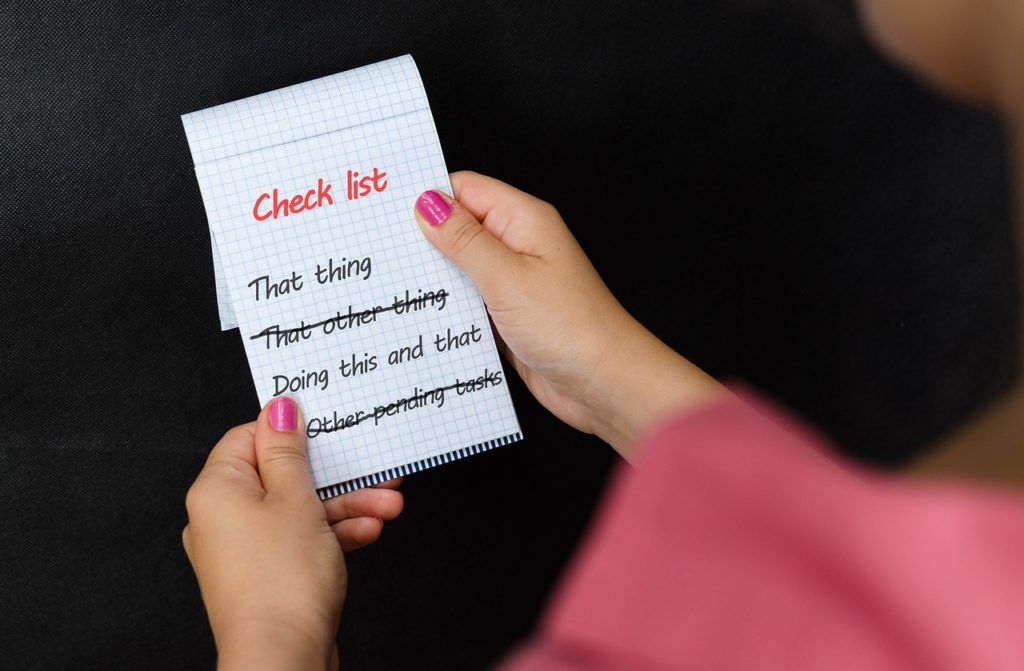
Do you frequently have a little worry in the back of your mind that your relationships won’t work out or that you will be rejected? Being in a relationship is one of the most vulnerable situations you can be in; some level of fear of rejection is natural. You must put your faith and trust in another person’s arms and hope that they return your love. Occasionally, you must be willing to put yourself into a position that makes you feel uneasy and unbalanced.
Whether you’re looking for love or your in a relationship, concerns about being rejected can have a negative influence on your connections or the lack of them. People have an intense desire to feel part of a group and connect with others both romantically and non-romantically. We develop relationships with others from the moment we are born, and these early ties often have a major impact on what we expect from our relationships in adulthood. (We will get to expectations further on is this article.)
The fear of rejection can range from being concerned that the person you are seeing doesn’t want you there to being afraid that they are cheating on you. It has the ability to reveal a great deal about our need for emotional security and connection with another person. This article is about signs of fear of rejection, including when unhealthy levels of dread of being rejected by an adult – a profound sense of dread of becoming involved with another adult and being rejected by them – can damage your relationship. Fear awareness allows you to be able to distinguish between a healthy fear and an unhealthy fear.
A person with a healthy fear is aware of the need for vigilance when they are entering a new relationship – you can’t avoid your desire for emotional security and connection, but you also need to know the difference between that healthy fear and an unhealthy one. In a relationship, you can benefit from allowing yourself to be vulnerable with the person you love, but only if you have established trust.
Many components are required for relationships to flourish, including love, dedication, friendship, chemistry, and so on. To establish a strong connection and keep it going, we need the ability to tolerate rejection. Find out more about what constitutes a healthy relationship in this article.
Do you wish to stop destroying your relationships by being a saboteur? Identify the warning signs of rejection phobia ruining your partnership.
A checklist of desirable qualities for potential partners?

Do you have a 50-point checklist for potential partners, and if someone doesn’t measure up on external criteria such as wearing the wrong type of shoes on a date, or doesn’t say the right things, you reject them? If you believe that only someone who fulfills all of your requirements will be a suitable match, you could wind up dating many people or just a few, because you are rejecting almost every person who comes along. If you’re exhibiting these traits, it’s may be that you don’t think anyone can love or respect you for who you are. It could also mean you struggle with low self-esteem.
Everyone has different requirements for the type of relationship they want, but it’s important to stay open and be willing to compromise where appropriate.
Do you believe everyone in your social world must admire and compliment you? If so, then you may end up feeling disconnected and unappreciated.
If you’re rejecting people who don’t lavish you with attention, it’s likely that one of your fears is to be deprived of love.
Fear of rejection makes it simple to build a wall around your deeper emotions. Of course, there are some “non-negotiables,” such as whether or not you want to have children or not, as well as if your potential mate shows respect for you. If you make decisions based on fear of rejection, you could pass up someone who might be a good match and loving partner. Perhaps it’s worth considering whether you’re scared of finding someone who could become your life companion in order to fulfill your needs. Being in a relationship entails putting one’s faith in someone else, who may respect, or misuse it.
Setting Sails before your rejected

Do you tend to bail out of relationships when they start to get more serious? Do you have a pattern of leaving a relationship after a fight and thinking, “This is it; I can’t handle this; I should leave now”. If you notice a pattern of exiting a relationship after a quarrel and believe, “This is it; he’ll leave me now; I should breakup the relationship.” Disagreements can be scary, especially in the early phases of a relationship. When situations are resolved, it may enhance emotional intimacy. If you flee from a romantic connection at that point due to fear of rejection, you only perpetuate the cycle by beginning another one and then ending it. You might be unable to nurture potentially fantastic, loving, and long-term relationships because you aren’t giving them a chance to flourish.
Jealousy: Unpleasant feelings of being excluded.

Feelings of suspicion and jealousy, particularly over time or to an extreme, can damper or end a relationship that otherwise may have been compatible and instead flourish. The person who becomes insecure and possessive because of fears of losing their partner, isn’t allowing for their partner to be involved in other positive relationships. If you become defensive in conversation or altercation , you may be trying to cover up your insecurities. These insecurities are at the root of jealousy.
It’s natural to be jealous; if, on the other hand, you become mistrustful and accuse your partner of their behavior without proof, your relationship may be heading for a breakup. Being accused of something without having done anything wrong can over time make your partner feel underappreciated and irritated. You may be heading in the direction of what you dread most if you continue to act on your jealousy. Your spouse can’t reassure you about their commitment unless you are willing to accept that they have chosen to be with you.
Pushing partners Away

How would you react if your partner desired closeness? This might be expressed in terms of emotional intimacy and confiding in one another, or it may take the form of physical contact. You may withdraw from communication and tell your spouse to stop touching in public, talk about anything else, or make a joke when he or she discusses something difficult. You may even start an argument for no apparent reason because you are concerned about the strong tie that your partner is attempting to build with you. Do you have a sense of isolation in your relationship? You might tell yourself or others that you are too practical for emotions, even if deep down you desire a close bond.
Perhaps you were brought up in a family where hugs and kisses were sparse, if not nonexistent; or where serious emotional discussions were avoided. As an adult, telling others about these may make you uncomfortable. If you let yourself trust your partner and accept their love for you, you can learn to embrace emotional and physical intimacy as well as appreciate it.
If you have experienced childhood trauma which is unresolved it is very likely impacting the patterns in your relationships. Childhood emotional neglect or abuse can affect your ability to feel connected and capable of love as an adult. No matter how much you care for someone, if you find yourself feeling isolated from your partner, it is time to seek professional help. The first step involves talking about the way that your caregivers treated you as a kid to make sense of how this may be impacting on your adult relationships. The second step involves processing the emotions that you would have felt as a child, but didn’t get to express.
“My body must be perfect to be loved”

You may be looking for love and worry that you won’t be able to find it unless you meet a certain female body image standard. You might tell yourself that you’ll never put yourself out there in search of love until you reach a particular size or form. You may believe your relationship is at stake if they are not attracted to your body: you could avoid displaying your body to them and even end up rejecting them instead. You may seek comfort from your partner, but it is meaningless unless you accept yourself.
People with negative self-esteem may develop body image issues, which can be a sign of deeper fears about being rejected. Your thoughts and feelings about your body might get in the way of locating or nurturing present love.
Expecting the Best, Expecting the Worst

Expectations in a relationship can lead to disappointment. How do your behaviors and thinking patterns affect others? If you are constantly telling yourself that the worst could befall you, this might make it seem to others that you are constantly preparing for the worst. You may also be expecting to find everything bad about your relationship and dreading how it will end, which can turn into a self-fulfilling prophecy.
You may expect your partner to fail at their job, or have unrealistic expectations of your children’s behaviors. You might worry excessively about your children’s safety and try to control them as a result of this fear. You may constantly tell yourself that you can’t be trusted or that you will fail at anything worthwhile. If you believe the worst, then it becomes more likely because any negative evidence corroborating it is all you’ll see and hear.
If you expect the best of yourself, you will be more confident of yourself and your relationships. You’ll develop a positive attitude that is less judgmental and better able to see the good things about life. However, we need to be careful not to overestimate ourselves or others, because this can lead to disappointment. If we expect the best in others, we may come across as demanding and unwilling to embrace the learning process that comes with failure. It’s simple to reject others’ attempts at accomplishment if they don’t succeed. We may set ourselves up for failure by expecting more from ourselves than is reasonable. You could be afraid of being rejected by a partner if you don’t fulfill your or their expectations.
Difficulty Setting Boundaries

Do you go out of your way to satisfy your partner, even if you know they are a bad match and may take advantage of your friendly disposition? Perhaps you stay in harmful relationships for longer and struggle to get out because you are concerned about being lonely and finding a suitable partner. If you have difficulty establishing limits in your relationship, it can make you dissatisfied, furious, and anxious, as well as potentially lead to depression.
Healthy and necessary boundaries exist in relationships. They are a sign of self-respect and inform your partner about what you’re comfortable with. A suitable and loving companion is willing to accept and respect your limits. When establishing boundaries, keep in mind that they should be established ahead of time where feasible and should span the point where your comfort zone begins to end. We frequently establish boundaries that are teetering on the verge of our capabilities rather than providing ourselves with a reasonable buffer zone between pleasure and restriction.
Lastly
Fear of rejection has many faces are only a few example of how it can ruin your personal relationships or prevent you from forming them. It’s true that we all want to be loved and accepted for who we are, but in intimate relationships, we must learn to live with the prospect of being rejected.
It’s easier to trust that your partner will not violate your confidence as time goes on in a loving and compatible relationship. When you’re feeling especially exposed to overcome your anxiety, acknowledge it, reassure yourself with some positive affirmations, and try to believe whatever happens, you’ll be able to cope with it. You may lose out on the opportunity to be loved if you don’t allow yourself to be vulnerable with another person and even more importantly yourself. Is it possible to expect that someone else would become intimate with you and your emotions if you yourself deny them?
Would you want to have more satisfying and enjoyable relationships?
Are you done feeling unconnected and anxious in relationships, and would you want to feel more confident, secure, and pleased with your relationships?
If this article resonates with you, then reach you could benefit from booking a session with our relationship coach.
Not Ready to make the jump? Schedule a free consultation with us to see if you could benefit from our world class services.
